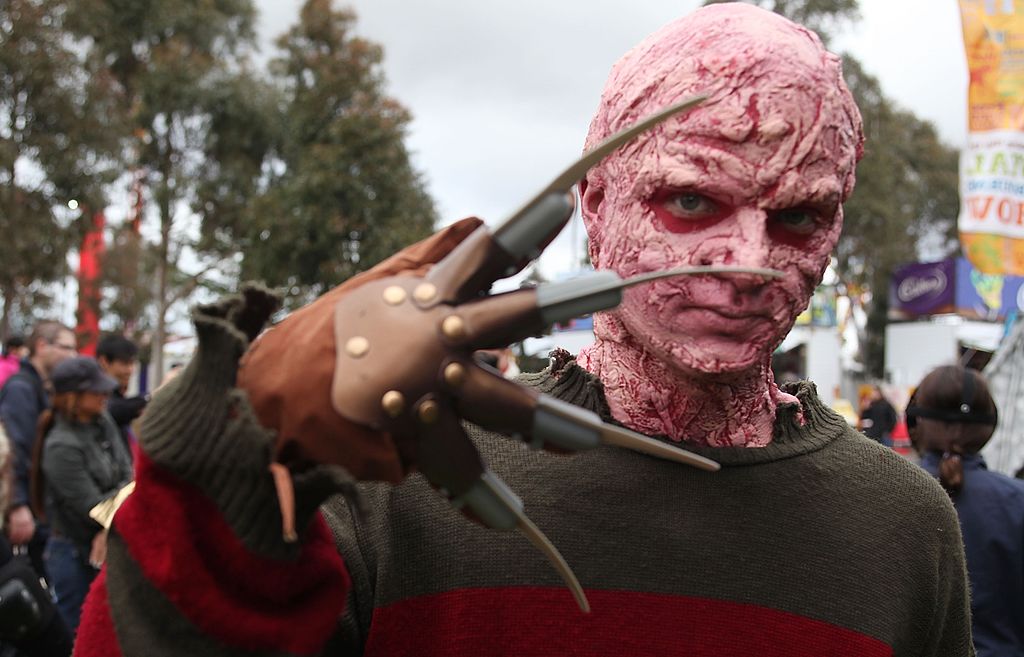All Hallows’ Eve is almost upon us and busy-bodies everywhere are sharpening their knives ahead of the inevitable annual costume scandal. For ordinary party-goers, there is reason to be fearful. Pick the wrong outfit and the consequences – getting fired, kicked out of university, ending up on the front page of a national newspaper – might be with you for the rest of your life.
Thankfully, the National Union of Students has stepped in to help. Urging every reveller to ‘check and double-check their costume’, the NUS has published an updated set of guidelines on how to be woke-macabre.
‘Halloween should be fun and most of us love it’, says the NUS. ‘But sometimes, there can be detrimental stereotypes hidden behind a costume’.
Scouring over the NUS’s rules, we can find the usual no-goes: racism (Canadian leaders take note), homophobia, sexism and transphobia (goodbye Norman Bates and Frank-N-Furter). But there is also a new addition to watch out for: ‘ableism’ or ‘discrimination against disabled people’.
This, of course, is a reasonable request and it’s right that disabled people aren’t discriminated against at Halloween as at any other time. But when we apply this rule to an evening themed around “horror”, it quickly become clear that the axe must fall on several iconic characters.
Nightmare in Elm Street’s Freddy Krueger is our first victim – his malevolence is epitomised by his horrific burn injuries. Friday 13th’s Jason and Texas Chainsaw Massacre’s Leatherface also need to be bumped-off, as they’re both portrayed with severe mental disabilities and physical deformities (Jason co-creator Ron Kurz even referred to the character as a “mongoloid creature”).
Pyscho’s Norman Bates, whom we previously binned on grounds of transphobia, requires exhumation and desecration for exhibiting symptoms of multiple personality disorder. Dr Jekyll and Mr Hyde ought to also watch his back for similar reasons.
Saw’s Jigsaw is dying of cancer and his victims are usually sans-limbs. Whatever the supernatural influence, Jack Nicolson’s character is clearly suffering a psychotic episode when he takes an axe to that door in The Shining. Neither of them make the final cut.
We might assume that Michael Myers – the stoic murderer from slasher-classic Halloween – is safe. Not so, according to a paper published by a team of psychiatrists led by professor Anthony Tobia of Rutgers’s Robert Wood Johnson Medical School. By their reckoning, Myers’ inability to speak “represents conversion disorder”, which is often a physical manifestation of acute stress or trauma. He also exhibits signs of autism.
The same paper identifies Hellraiser’s Pinhead as embodying sexual masochism disorder. Not an appropriate costume of choice then.
In a blow to more recent movie-goers, professor Tobia tells me the inappropriate laughter and ticks of Joaquin Phoenix’s Joker are indicators of progressive supranuclear palsy, which is no laughing matter and should also perhaps be ruled out.
We must even draw the curtains on Dracula. Bram Stoker’s villain is drawn from the pages of a non-fiction biography of Vlad III ‘The Impaler’ of Wallachia – a man who, along with his penchant for putting people on sharp sticks, is a likely sufferer of Antisocial Personality Disorder. Tobia’s team observes that Vlad’s fictional incarnation exhibits the same symptoms as his historical namesake.
So who has survived the massacre?
Readers will be relieved that Pennywise – the child-eating clown from Stephen King’s IT – passes the NUS’s test with flying colours and so is unlikely to cause upset.
As a qualified psychiatrist, Hannibal ‘The Cannibal’ Lecter could probably tell you that his condition, psychopathy, is not considered a disability. Likewise, fans of the Scream series will recall that the persona of Ghostface – a masked serial-killer – can be adopted by anyone. What better a murderer for the intersectional age?
Death is good fun to revel in, but in doing so we should be careful not to stray onto sensitive topics, like injury and illness. Thanks to the NUS, we now have no excuse to do so.






Comments